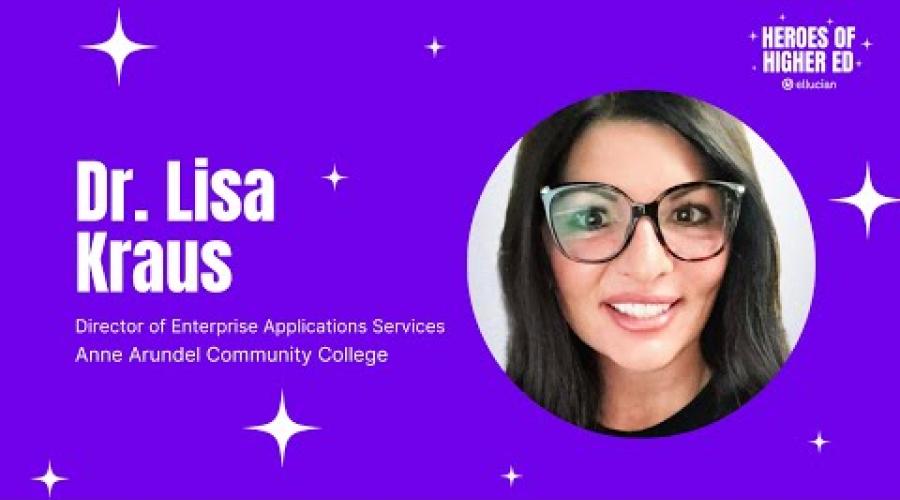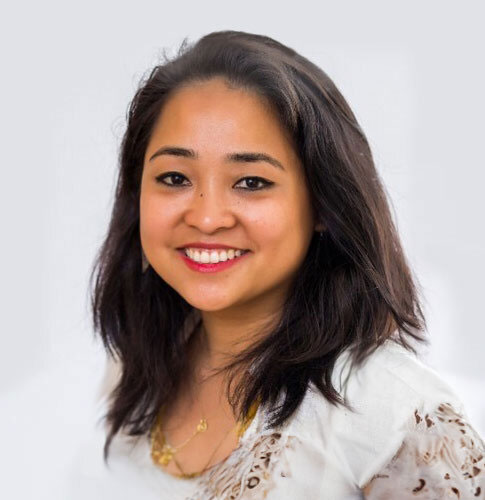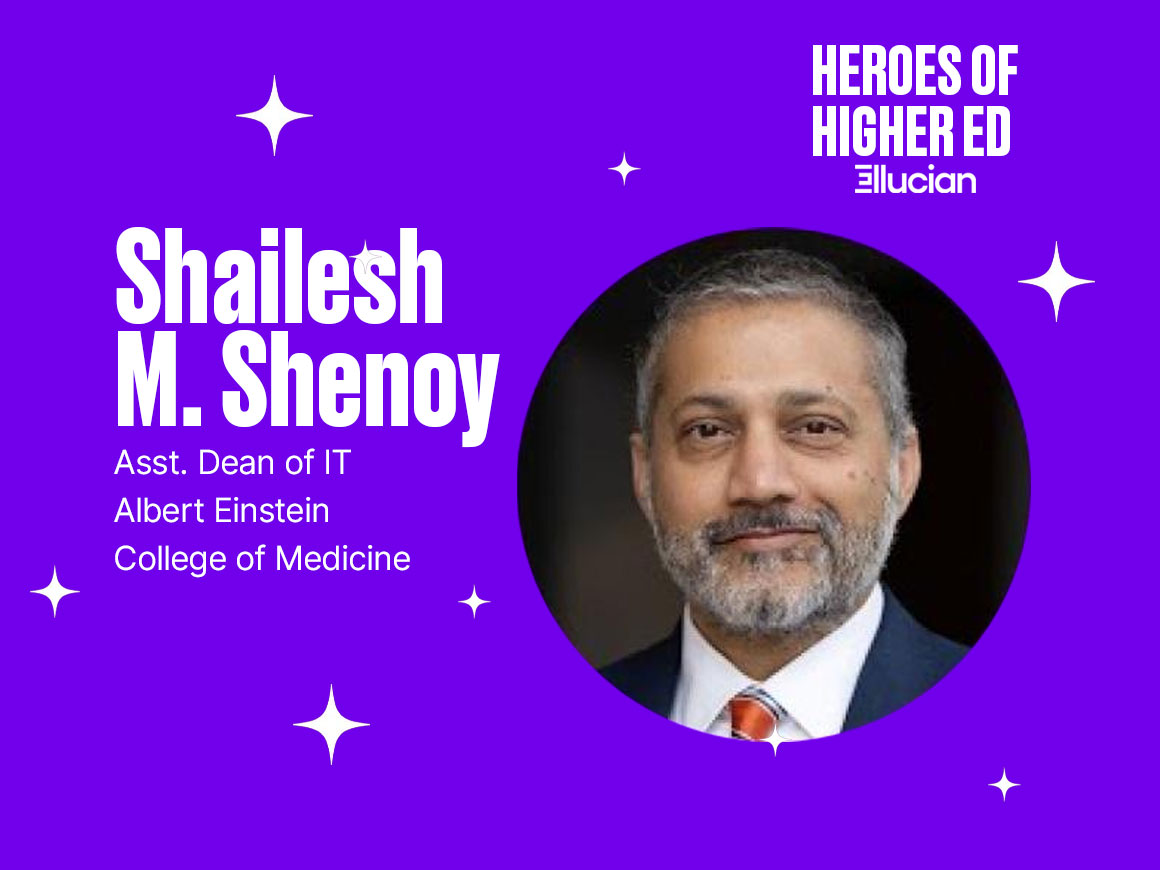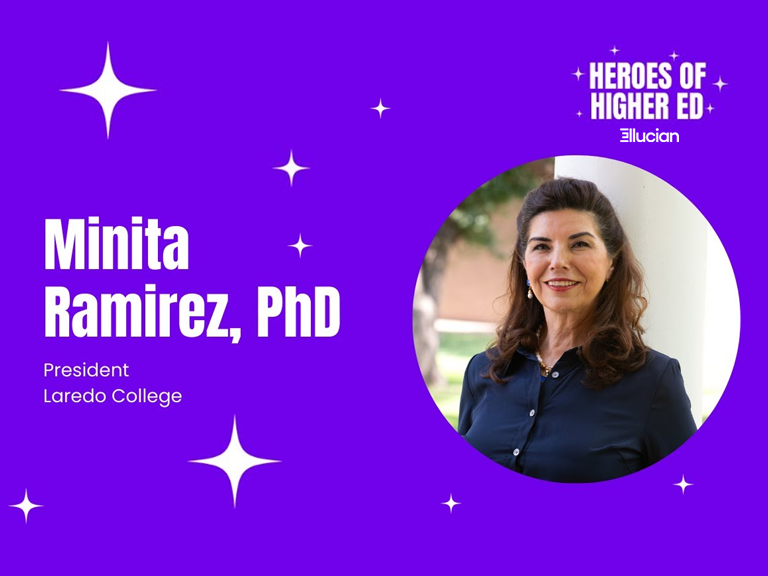Harnessing technology to advance and support a diverse community
As part of our monthly Heroes of Higher Ed series, we spotlight the remarkable achievements and contributions of individuals who are making a difference in higher education. We recently sat down with Dr. Lisa Kraus, Ph.D., the Director of Enterprise Applications Services at Anne Arundel Community College.
With over 15 years of experience in higher education and a deep-rooted passion for fostering student success, Dr. Kraus has dedicated her career to transforming educational technology in support of a diverse community. Join us as we explore her inspiring journey, significant contributions, and vision for the future of community colleges.
Can you tell us a little about your background and experience?
I hold a PhD in Information Technology Leadership and have 15 years of experience working in higher education. The past three of them have been at Anne Arundel Community College (AACC), the single largest community college in Maryland, serving about 28,000 students each year.
Did you always want to work in higher education? What led you to this career path?
I began my professional career as a programmer analyst for a software development company, where I created software applications for the Department of Defense. I enjoyed that decade of my life immensely, but it required a lot of travel and became too demanding while I was raising two young children.
Joining the higher ed workforce truly felt like coming home. I grew up on a university campus as my parents pursued multiple undergrad and graduate degrees to build and advance their professional careers. That formed my earliest perspective that higher education is among basic needs.
You also served as a publicly elected school director for K–12. What inspired you to take on that role?
I served as a publicly elected school director for my local K-12 school district for over 12 years. Both my investment in my children's education and my natural gravitation toward education led me there. I had an experience with my grandfather while sitting in the backyard watching my cousins play football, and I hollered out instructions from the sidelines. My grandfather gently grabbed me by the arm and said, 'Are you going to get out there and show them how to do it?' He cautioned that I shouldn't offer advice to people if I'm not willing to do it myself.
I felt like I had a lot of advice to offer my local K-12 community. If I was going to raise my voice for change, I needed to stand by it and be an agent for change.
What does your current role look like day-to-day? What inspires you in your work?
I work hard to build the best and brightest teams, strong technology partnerships, and robust peer networks. It's not difficult to stay inspired when you're surrounded by some of the most talented and capable resources, all working together to advance humankind. It's motivating to work toward a common goal.
What is special about Anne Arundel Community College (AACC)? What keeps you there?
I love the overall purpose of community colleges as a vital part of the higher education system. AACC truly mobilizes its mission to meet the needs of our diverse community. We offer high-quality, affordable, and innovative lifelong learning opportunities, creating a student-centric culture. It's an honor to be a part of the culture at AACC.
Was there a turning point in your career that stands out?
Absolutely—the technological and cultural transformation of higher education in response to COVID-19. Higher ed institutions are traditionally rigid and change-adverse, but COVID forced a mad dash to modernize. It was the most significant turning point in my career as a technology leader.
How did your institution respond to the COVID-19 pandemic?
We were fortunate to have a stable infrastructure that could support rapid modernization. Still, we had to incorporate many creative solutions to keep individuals in programs that were not initially established for remote opportunities. Community colleges offer very hands-on, technical applications, so it was more difficult.
In technology leadership, how do you feel your work contributes to student success?
Everything we do is focused on student success, and I feel the impact of my work every time a student succeeds — whether it's completing a certificate program, degree program, or any of our lifelong learning opportunities.
We're currently engaged in a major technology modernization initiative as well as adapting organizationally to better support continuous improvement by transforming our data infrastructure, modernizing our core ERP, and improving student information systems and accessibility to all technology solutions at AACC. From a technological perspective, those are some of the things that I can bring to the overall campus community to help ensure student success.
Do you feel supported by the institution's leadership?
Absolutely. AACC is the best place to work. We are doing everything right. We have buy-in for transformation, with everybody focused on providing a frictionless experience for students.
Will community colleges like AACC become even more relevant in the future?
It's difficult to say how things will evolve and what the landscape for higher education will look like. Continuing to be agile and shift dynamically to the changing trends is the way to go.
What advice would you give to someone aspiring to follow your career path?
I encourage others to embrace change, first and foremost. Be transformative in your continuous improvement efforts. The higher education landscape is changing rapidly, and our institutions need to be agile enough to address unexpected challenges and shifting student expectations.
Be committed to breaking down silos and bridging gaps between operational units and processes. Among our innovation, objectives at AACC, we are tasked with building frictionless services and programming to enhance the overall student, faculty, and staff experiences.
Our IT departments provide applications and services that connect otherwise siloed functions, giving us an optimal vantage point for identifying gaps or other areas for improvement. Technology systems and teams are the connective tissue that mobilizes the end-to-end student experience.
My final bit of advice is that it's important to consider the varied perspectives of your audience and be intentional with your messaging. An early mentor once asked me why the Provost should care about the content of one of my presentations and I was stunned. Everything I prepared, was to me so obviously important. But as I read back through, considering the Provost’s interest, the message was lost. So, apply the audience's lens to your message.
How do you stay motivated, especially in today's challenging climate?
If you're going to put so much of yourself into a career, it really ought to be worth it. I'm always examining how I'm making a difference and asking, 'What are my goals and the institution's goals?' When you're able to effect the change that brings all these elements into proper alignment, it's automatically motivating.



